
Propaganda, dissemination and legal education on the Law on Cultural Heritage
Law on Cultural Heritage No. 45/2024/QH15 was passed by the 15th National Assembly at the 8th Session on November 23, 2024, effective from July 1, 2025 (hereinafter referred to as the Law on Cultural Heritage).
In order to implement the Law in a timely, unified and effective manner, the Prime Minister promulgates the Plan for implementing the Law on Cultural Heritage with the aim of specifically defining the work contents, deadlines, completion progress and responsibilities of relevant agencies and units in organizing the implementation of the Law on Cultural Heritage to ensure consistency, unity, effectiveness and efficiency. Identify the responsibilities and coordination mechanisms between ministries, ministerial-level agencies, government agencies, localities and relevant agencies and units in implementing activities to implement the Law on Cultural Heritage nationwide.
The requirement is to ensure the unified direction of the Government and the Prime Minister, the close, regular and effective coordination between ministries, ministerial-level agencies, government agencies, People's Committees of provinces and centrally run cities and relevant agencies and units in implementing the Law on Cultural Heritage. Determine a specific roadmap to ensure that the Law on Cultural Heritage and documents detailing a number of articles of the Law are implemented in a unified, synchronous, effective and efficient manner nationwide.
Perfecting institutions and policies
According to the Plan, perfecting institutions and policies is one of the important contents that must be implemented.
Specifically, review legal documents related to the Law on Cultural Heritage under the assigned state management authority; implement according to authority or recommend competent authorities to promptly amend, supplement, replace, abolish or issue new legal documents to ensure consistency and compliance with the provisions of the Law on Cultural Heritage and documents detailing a number of articles of the Law.
The Ministry of Culture, Sports and Tourism is the implementing agency. The completion time is in 2025 and the following years.
In addition, develop and promulgate legal documents detailing the implementation of the Law on Cultural Heritage, including:
- Develop a Decree regulating measures to manage, protect and promote the values of world cultural and natural heritage, underwater cultural heritage, intangible cultural heritage in UNESCO Lists and National Lists of intangible cultural heritage and policies for artisans and subjects of intangible cultural heritage (Clause 3, Article 14; Clause 5, Article 17; Clause 6, Article 25; Clause 4, Article 39).
- Develop a Decree regulating the authority, order, procedures, records for establishing, appraising, and approving archaeological planning; planning and projects for preserving, repairing, and restoring historical-cultural relics and scenic spots; investment projects, construction works, repair, renovation, and construction of individual houses located inside and outside protected areas of historical-cultural relics and scenic spots; investment projects for construction, renovation, and upgrading of technical infrastructure works and exhibitions of public museums (Clause 6, Article 29; Clause 5, Article 30; Clause 5, Article 34; Clause 4, Article 35; Clause 5, Article 37; Clause 2, Article 70).
The agency in charge of drafting the above two Decrees is the Ministry of Culture, Sports and Tourism. The deadline for completion is before April 15, 2025.
Propaganda, dissemination and legal education on the Law on Cultural Heritage
The Decision clearly states that another important task is to organize propaganda, dissemination and legal education on the Law on Cultural Heritage and documents detailing a number of articles of the Law. Post and update the full text of the Law on Cultural Heritage and documents detailing the implementation of the Law on the Electronic Information Portal/Page, the National Database of Legal Documents and other appropriate forms so that cadres, civil servants, public employees, workers and the People can easily access, exploit and use them.
Deploy appropriate forms of legal dissemination; compile, post, widely publish documents, disseminate and coordinate with the Ministry of Justice to update on the National Legal Education Dissemination Information Portal at: http://pbgdpl.gov.vn .
Organize specialized training, professional development and compile training materials for human resources in managing, protecting and promoting cultural heritage values.
The implementing agencies include: Ministry of Culture, Sports and Tourism, Ministry of Justice, People's Committees of provinces and centrally run cities, Voice of Vietnam, Vietnam Television, Vietnam News Agency and other press, radio and television agencies.
At the same time, carry out the state management tasks assigned in the Law on Cultural Heritage. The activities include: Reviewing and carrying out the state management tasks assigned in the Law on Cultural Heritage according to the fields and areas within the scope of assigned tasks and powers.
The budget to ensure the implementation of the Plan for enforcing the Law on Cultural Heritage is balanced in the annual regular expenditure estimates of relevant ministries, branches and localities according to the provisions of the law on the state budget.
Source: https://kinhtedothi.vn/ban-hanh-ke-hoach-trien-khai-thi-hanh-luat-di-san-van-hoa.664388.html


![[Photo] General Secretary To Lam receives the Director of the Academy of Public Administration and National Economy under the President of the Russian Federation](/_next/image?url=https%3A%2F%2Fvphoto.vietnam.vn%2Fthumb%2F1200x675%2Fvietnam%2Fresource%2FIMAGE%2F2025%2F12%2F08%2F1765200203892_a1-bnd-0933-4198-jpg.webp&w=3840&q=75)









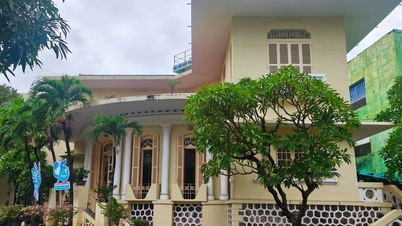























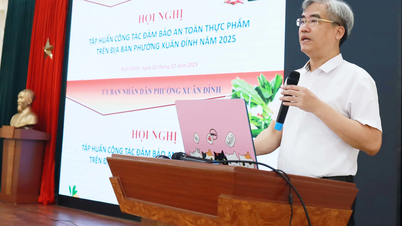
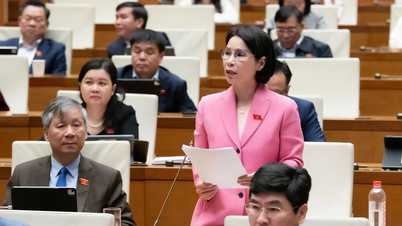














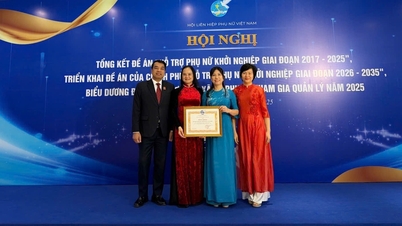
















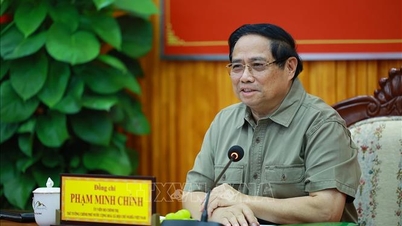





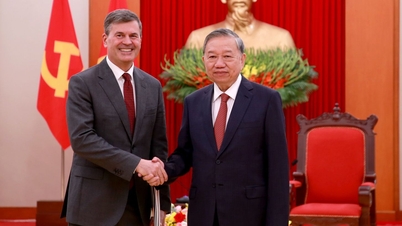










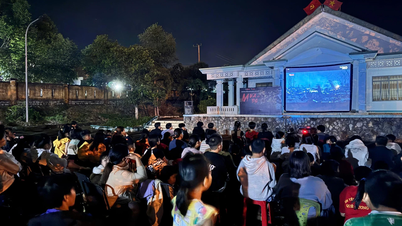

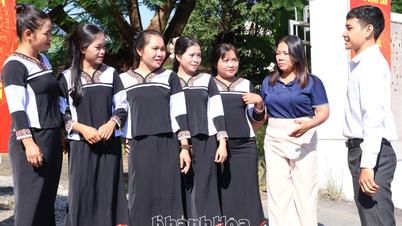

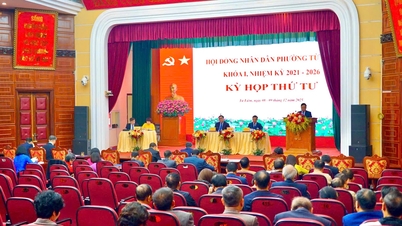

















Comment (0)